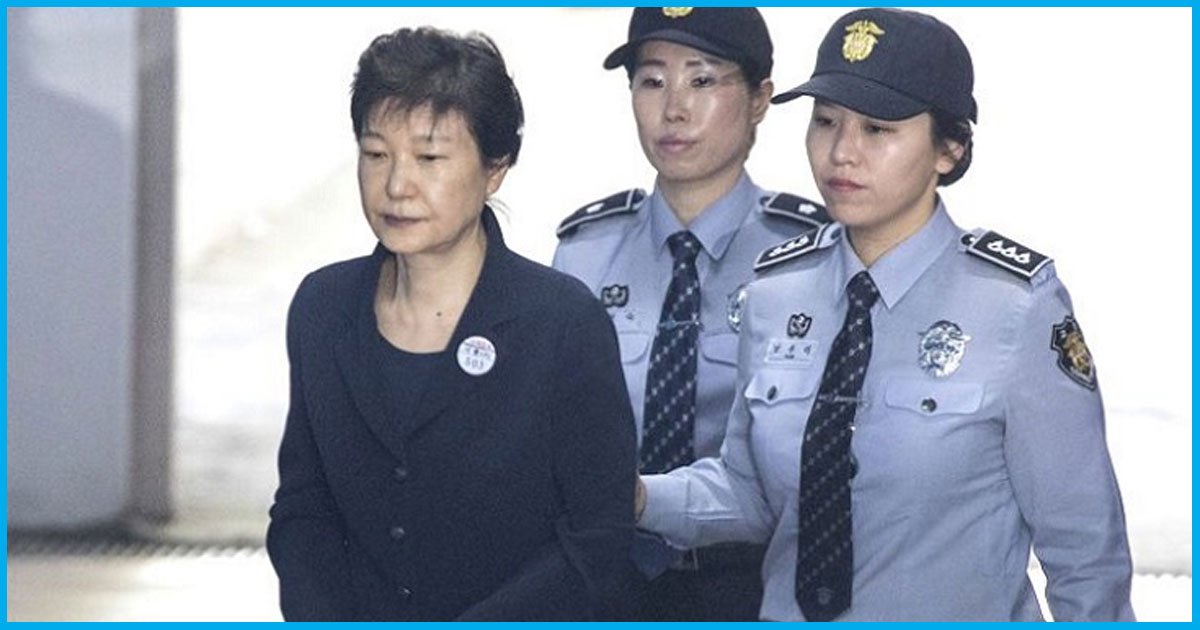
South Korea: Former President Sentenced To 24-Yrs Jail Term On Charges Of Corruption
6 April 2018 1:24 PM GMT
On April 6, a South Korean Court held former president Park Geun-hye guilty for abuse of power, bribery and coercion and sentenced her to 24 years in jail.
Third former president to be convicted
The disgraced former president was impeached and stripped of all her powers after she and her close confidant Choi Soon Sil were embroiled in cases of graft, influence-peddling and taking bribes from corporates for which Prosecutors had asked for Park to receive a 30-year sentence.
Park was South Korea’s first female president and daughter of dictator Park Chung-hee. The trial lasted for ten months. Judge Kim Se-Yoon said, “The accused abused the power bestowed by the people-the true ruler of this country-to cause chaos in national administration.” The judge also added that Park showed no signs of remorse, “Despite all these crimes the accused denied all the charges against her, displayed no remorse and showed an incomprehensible attitude by blaming Choi and other … officials”
The 66-year-old disgraced former President was found guilty of 16 of the 18 charges faced. Apart from the jail term, Park is also fined $17 million.
Downfall
Park was ousted from the office last year by the country’s Constitutional Court through a parliamentary vote to impeach her.
Millions of South Koreans thronged the streets demanding Park’s ouster post which this vote came.
In August 2017, heir to the Samsung empire Lee Jae-yong was sentenced to five years imprisonment for making large donations to foundations run by Choi, in return of political favours.
Park is the third former South Korean leader to be convicted on criminal charges after leaving office. The other two were Chun Doo-Hwan and Roh Tae-woo who were found guilty of treason and corruption in the 1990s.
 All section
All section













